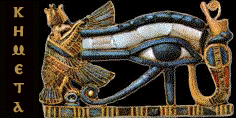|
Rethinking Kwanzaa: On Better Realizing The Principles Of The Nguzo Saba.
Kwanzaa, the African-American holiday celebration of community values,
has been practiced now for nearly forty years. In that time it has
grown into a multinational Pan-African celebration. But what is it
about this holiday that is so significant to African-Americans and why
has it not taken root among us enough to supplant the traditional
American Christmas celebration? Kwanzaa is said to derive from the
first fruit harvest celebrations of many African societies and this is
in part true. It is said to have evolved from the Nguzo Saba (Seven
Principles) of Kawaida theory developed by Maulana Karenga of the Us
Organization and this is also in part true. But the deeper significance
in Kwanzaa lies in the aspects of it that are not commonly discussed.
There is a difference in celebrating a 40 year old holiday and
celebrating a 4000 year old holiday. In this difference are the keys to
our realization of those Seven Principles. From a Kemetic viewpoint,
Kwanzaa falls in the Romathi month of Ka` Xir Ka` (Khoiak) and so
should have special significance to us. Specifically Kwanzaa begins on
the eve of the beginning of celebrations of Ka` Xir Ka` and culminates
on the Day of Liberation. Ka' Xir Ka' translates as "spirit upon
spirit" or "sustenance upon sustenance" and is the Romathi festival of
the resurrection of Osar the father of our Nation. The Day Of
Liberation is the day marking the expulsion of the Hyksos from Kemet
and not surprisingly also marking the emancipation of the
African-American from bondage in America. It is ignorance this less
commonly known tie that keeps the realization of the Seven Principles
just out of our grasp. The presentation of Kwanzaa as a 40 year old
holiday created by a Black man to bring cultural awareness and
organizing principles to his people is therefore not the whole scope of
the picture we should take from Kwanzaa. Instead of being the whole
book it is only a modern preface to a very old book that had long since
been forgotten but whose time of remembrance has now come to fruition.
Here we stand on the brink of 40 years from the (re)founding of our
National holiday and yet how much closer are we to realizing those most
important values? I would offer that the acceptance of Kwanzaa by the
mainstream argues strongly to the fact that it was never intended
promote realizing those values only to memorialize the struggle of our
people for full liberation without actualizing it. And so 40 years from
now we can still be talking about these seven principles and still be
no closer to achieving or attaining them and certainly no closer to
hearing the whole story of the holiday.
The realization of the principles of Kwanzaa would be to the extreme
economic detriment and loss of this country's government and its corporate
citizens' pockets. Therefore Kwanzaa must forever be a supplemental holiday to the
Christmas shopping orgy and never be in direct competition. In order
for it to be non-threatening it must never gain a religious
significance nor can it ever inherit its true cultural significance. It
must remain a secular, modern contrivance however noble the aspirations
of its founder. If Dr. Karenga knew the significance which he might
well have known (as he has studied and written works on Ma'at and
Egyptian ethics and culture) I must wonder why he has not proclaimed
this deeper meaning to the masses. If he did not know the significance
which he may well not have known (as the calendrical systems used by
Egyptology are off by months from the true Romathi calendar) then I can
only praise and give thanks and honor to Amun, for his hand is
manifestly at work in effecting our liberation yet again. In either
case, the significance of this holiday of ours must now come to light
so that all may know and see. How many are willing to spread this
message?
| 
